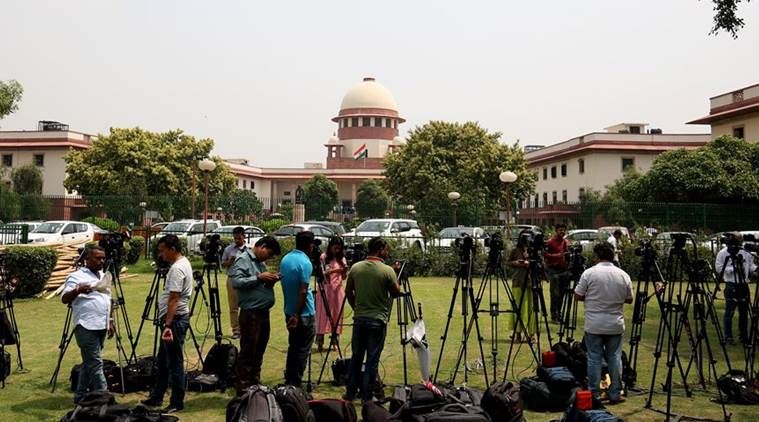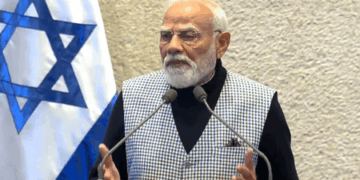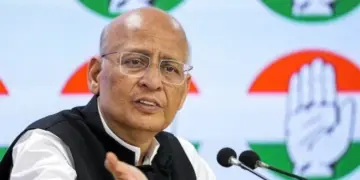 NEW DELHI: A five-judge Constitution Bench of the Supreme Court, led by Chief Justice of India (CJI) Dipak Misra, on Thursday scrapped the pre-Independence provision of adultery in the Indian Penal Code (IPC), which treats a married woman as a commodity owned by her husband.
NEW DELHI: A five-judge Constitution Bench of the Supreme Court, led by Chief Justice of India (CJI) Dipak Misra, on Thursday scrapped the pre-Independence provision of adultery in the Indian Penal Code (IPC), which treats a married woman as a commodity owned by her husband.
Section 497 (adultery) gives a husband the exclusive right to prosecute his wife’s lover. If found guilty, the adulterer faces five years behind bars.
A similar right is not conferred on a wife to prosecute the woman with whom her husband has committed adultery. Secondly, the provision does not confer any right on the wife to prosecute her husband for adultery. Further, Section 497 does not take into account cases where the husband has sexual relations with an unmarried woman.
Chief Justice Misra, in an opinion for himself and Justice A.M. Khanwilkar, held that criminalising adultery is “absolutely, manifestly arbitrary and unconstitutional”.
Adultery may not be the cause of an unhappy marriage, but a result after all. It would be tantamount to punishing people who lived in an unhappy marriage, he observed.
“Attaching criminality to adultery is going too far… a retrogade step.” Of course, adultery can be a ground for a civil remedy – dissolution of marriage, he wrote.
Justice Rohinton F. Nariman said Section 497 was based on a chauvnistic notion. This was clear from the fact that the cuckolded husband’s connivance removes the element of criminality in an adulterous relationship.
The archaic provision — over 150-years old — is a relic of the past, brought in much before the Constitution introduced the fundamental rights of equality, liberty and dignity. Women are treated as “chattel” of the husband. A law founded on the “ancient” notion of man as seducer and woman as his victim needs to be thrown out, Justice Nariman said in no uncertain terms, concurring with the main opinion of the CJI.
In his separate opinion, Justice D.Y. Chandrachud championed the sexual autonomy of women within marriage. Partners in marriage should have respect for each other’s sexual autonomy. This respect blooms from the respect for each other, he observed.
A woman has sexual autonomy within marriage. Marriage does not mean ceding autonomy of one to the other. Ability to make sexual choices is essential to human liberty. Even within private zones, an individual should be allowed her choice.
Society imposes impossible virtues on a woman. Raises her to a pedestal. Confines her to spaces. Treats her as objects capable of being punished and says she should be pure, but has no qualms to rape her, assault her, commit female foeticide, discriminate against her within a home, Justice Chandrachud said.
His concurring opinion transcended from a mere quashing of Section 497 to a judicial document on the discursive struggle of women against patriarchy. One of the headings is ‘The Good Wife’ who has no reason to complain even if her husband has a relationship with another woman.
Justice Indu Malhotra, reading her opinion (the last on the Bench), held that Section 497 based on the Doctrine of Coverture, which holds that a woman loses her identity and legal right with marriage, is violative of her fundamental rights. This doctrine is not recognised by the Constitution
Any law which affects individual dignity, equity of women in a civilised society invites the wrath of the Constitution… a woman’s individual dignity cannot be treated as an annexe to the main building.
The judgment comes on a petition filed by Kerala based Joseph Shine, represented by advocates Kaleeswaram Raj and M.S. Suvidutt, seeking a declaration of Section 497 as unconstitutional.







